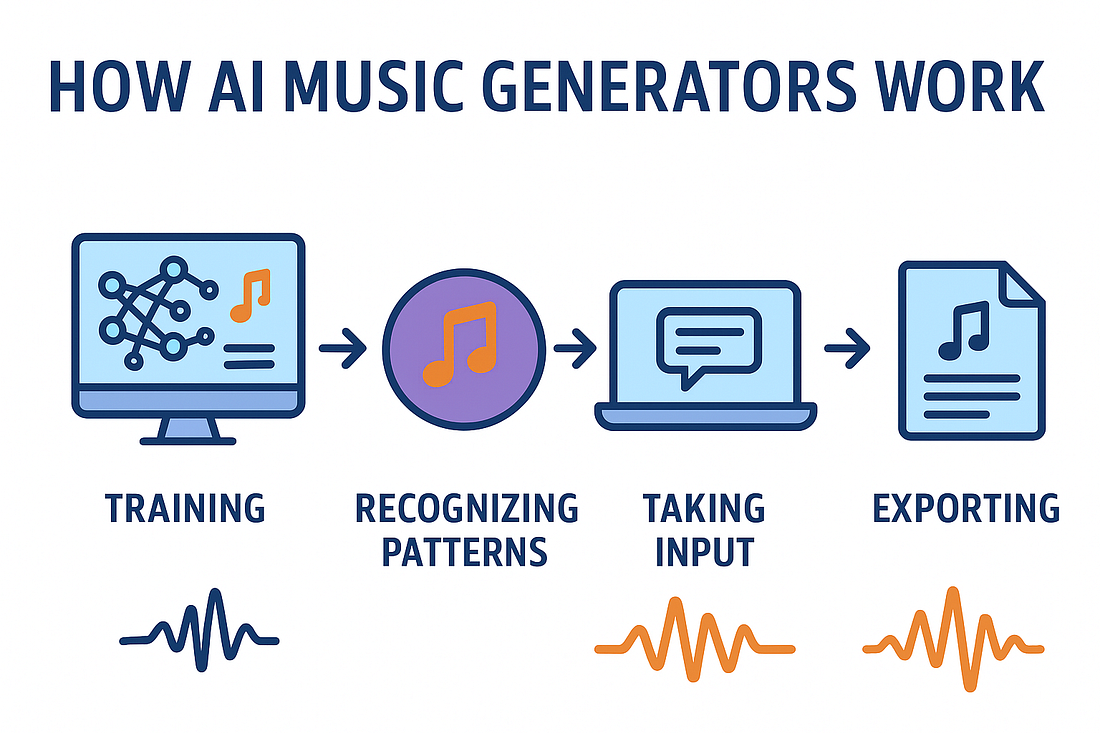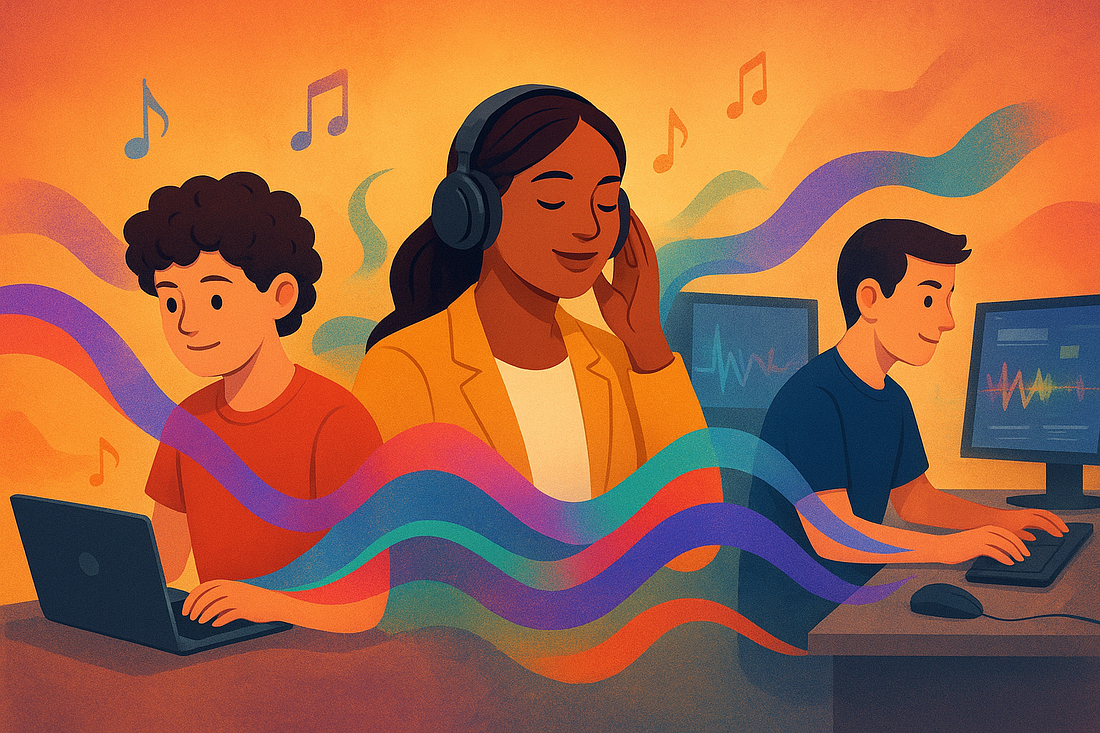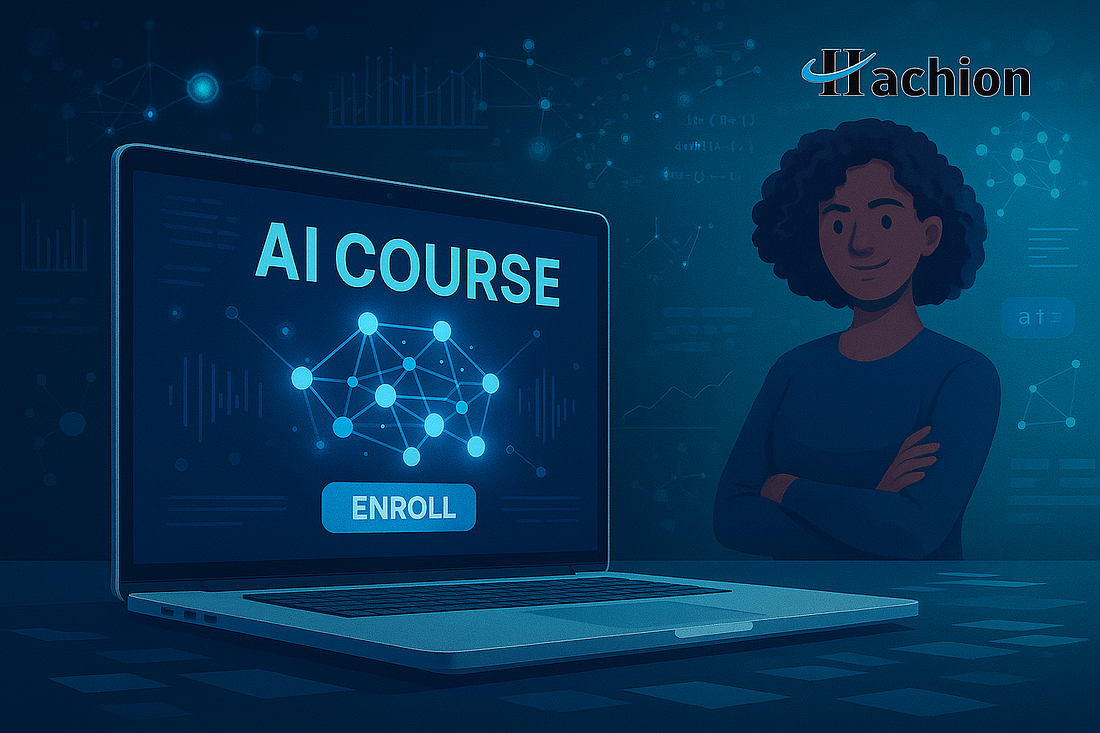views
Imagine being able to compose a full song without ever touching a musical instrument. No piano lessons, no expensive recording studio, no late-night struggles over melody lines — and yet, you end up with a professional-sounding track that could rival chart-toppers.
That’s exactly what AI Music Generators are making possible.
In the past, creating music was a long, skill-intensive process. Composers would spend days — or even months — perfecting a single piece. But now, thanks to Artificial Intelligence, anyone can create beats, instrumentals, and even complete symphonies in minutes. Whether you’re a seasoned musician looking for inspiration or a beginner experimenting with sound, AI music tools can help you bring your ideas to life.
By 2025, AI music generators will have become more popular than ever. Content creators are using them for YouTube intros, indie game developers for background scores, and marketers for ad jingles. Some artists are even releasing AI-generated songs on streaming platforms.
In this article, we’ll break down what AI music generators are, how they work, their benefits, challenges, popular tools, and how you can start creating your AI-powered music today.
What is an AI Music Generator?
An AI music generator is a software or online platform that uses artificial intelligence — mainly machine learning and deep learning — to compose music. These systems are trained on huge datasets of existing songs, learning patterns in melody, rhythm, and harmony.
Once trained, they can generate entirely new pieces of music based on your instructions. For example:
- You could type “Create a slow piano melody with a jazz vibe”, and the AI will produce it.
- Now, you can simply hum a melody, and the AI will transform it into a full arrangement.
- You could choose a mood — like “happy” or “melancholic” — and it will compose accordingly.
Some AI music generators can even produce lyrics alongside the melody, making them full-fledged songwriting assistants.
The core idea is accessibility — making music creation possible for everyone, regardless of their technical or artistic background.
How Do AI Music Generators Work?

At first glance, AI music creation might feel magical, but behind the scenes, it’s pure technology. Here’s the process in simple terms:
Step 1: Training the AI
Developers feed the AI with thousands (or even millions) of songs across genres. These songs are broken down into patterns — like chord progressions, tempo changes, and note arrangements.
Step 2: Pattern Recognition
Using deep learning, the AI learns:
- Which chords sound good together?
- How different instruments blend.
- What elements in music create a feeling of happiness, sadness, energy, or calmness?
Step 3: Taking Your Input
You give the AI an instruction — called a prompt. This could be:
- Text description: “Epic orchestral soundtrack for a space adventure.”
- Sample upload: A short guitar riff you recorded.
- Genre selection: Rock, EDM, Lo-fi, Classical, etc.
Step 4: Music Generation
The AI applies what it learned to create a brand-new piece that matches your request.
Step 5: Editing and Exporting
You can adjust the tempo, swap instruments, add effects, and export your finished track in formats like MP3 or WAV.
In short, the AI acts like a composer who has studied thousands of musicians and now creates original music based on your creative direction.
Popular AI Music Generator Tools in 2025

If you’re ready to try, here are some of the most popular AI music platforms available right now:
1. Suno AI
- Best for: Beginners and quick song creation.
- Features: Text-to-music, lyric generation, and multiple genres.
- Why people love it: Extremely easy to use — just type what you want, and it delivers.
2. AIVA (Artificial Intelligence Virtual Artist)
- Best for: Orchestral and cinematic compositions.
- Features: Customizable arrangements, sheet music export.
- Why people love it: Great for film scoring and classical music lovers.
3. Amper Music
- Best for: Content creators and marketers.
- Features: Royalty-free music, easy editing, genre/mood options.
- Why people love it: You can instantly create tracks for YouTube, ads, and podcasts.
4. Soundraw
- Best for: Highly customizable music.
- Features: AI-generated melodies you can rearrange and tweak.
- Why people love it: Great for people who still want creative control.
5. Boomy
- Best for: Fast song publishing.
- Features: Create, distribute, and even monetize AI-generated tracks.
- Why people love it: Ideal for aspiring artists looking to release music online.
6. OpenAI MuseNet
- Best for: Experimental compositions.
- Features: Key features include the ability to create compositions with up to 10 instruments in various styles.
- Why people love it: Wide range of creative possibilities.
Benefits of AI Music Generators

Why are so many people switching to AI for music creation? Here’s why:
1. No Musical Skills Needed
You don’t have to read sheet music or play an instrument. Just describe your idea.
2. Saves Time
What used to take weeks can now be done in minutes.
3. Budget-Friendly
No need to hire a full studio team for small projects.
4. Unlimited Creativity
You can try wild combinations — like jazz blended with EDM — just to see how it sounds.
5. Accessibility for All
People with disabilities, who might struggle with traditional instruments, can now compose music easily.
Who Can Use AI Music Generators?
These tools aren’t just for professional musicians. They’re for anyone who needs music:
- Musicians & Producers: For inspiration and quick idea generation.
- YouTubers & Podcasters: For intros, background tracks, and jingles.
- Game Developers: For ambient soundtracks and interactive music.
- Marketers: For campaign-specific audio branding.
- Students: For creative projects and learning music structure.
Limitations & Challenges
While exciting, AI music generators aren’t perfect.
1. Emotional Depth
AI still finds it challenging to fully capture the emotional depth and subtlety of music created by humans.
2. Copyright Issues
If AI is trained on copyrighted music, legal debates can arise.
3. Repetitive Patterns
Some tools generate music that can sound “similar” after a while.
4. Ethical Questions
Some fear AI could replace human musicians, reducing job opportunities in the industry.
The Future of AI in Music
The future looks promising — and a little unpredictable.
- Co-Creation with Musicians: AI will likely be used as a partner, not a replacement.
- Personalized Soundtracks: Music tailored to your mood in real-time.
- Interactive Concerts: AI could generate live music based on audience reactions.
- Virtual Artists: Fully AI-driven singers and bands might dominate online charts.
Step-by-Step: How to Create Your First AI Music Track
Here’s how to get started today:
- Pick a Platform: Try Suno AI, Boomy, or AIVA.
- Choose Your Style: Decide on genre, mood, and tempo.
- Enter Your Prompt: Describe the track in detail.
- Customize: Adjust instruments, speed, and effects.
- Export: Save your music in MP3 or WAV format.
- Use It: Add it to videos, games, or personal playlists.
Final Thoughts
AI music generators are transforming the way we create, share, and experience music. They remove creative barriers, allowing anyone — from bedroom beat makers to filmmakers and marketers — to compose original tracks in minutes. While ethical and copyright concerns remain, the creative potential of these tools is undeniable. With AI, your next soundtrack, jingle, or hit song could be just one prompt away.
But AI’s influence doesn’t stop at music — it’s shaping industries, creating new career paths, and redefining how we work and innovate. Learning AI today isn’t just an option; it’s a smart investment in your future.
Why Learn AI with Hachion?

At Hachion, we make AI learning practical, engaging, and industry-ready. Our AI course is built by experts, packed with real-world projects, and designed to give you hands-on skills that employers value. Whether you’re just starting or upgrading your expertise, Hachion will guide you every step of the way.
🚀 Seats are filling quickly! Enroll in Hachion’s AI course today and turn your curiosity into career-defining skills.
Enroll Now










